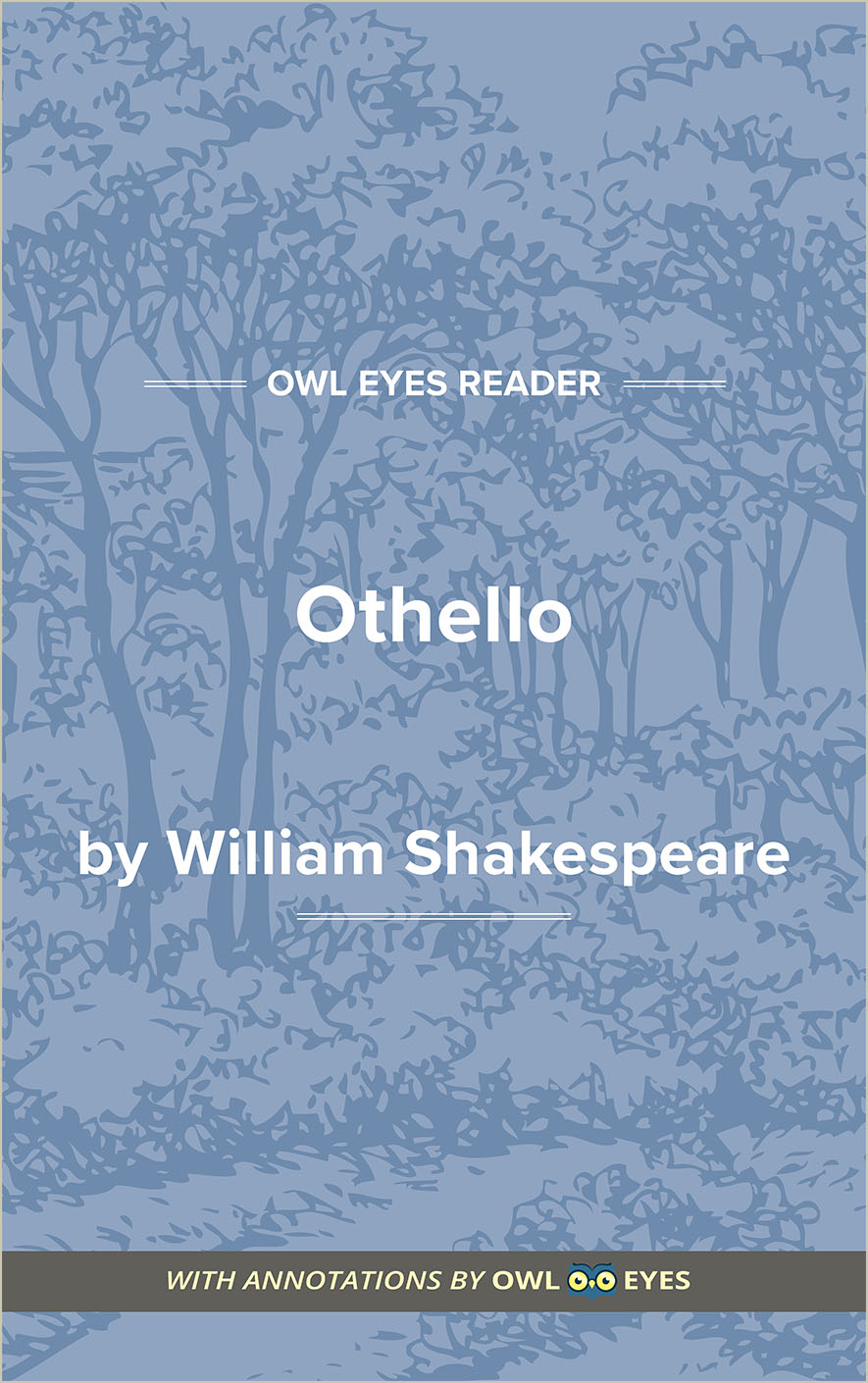This is an example of enjambment. The preceding line runs into the following one without giving the speaker a logical place to take a breath. Notice how Othello inhales deeply after he says, "I'll smell it [Desdemona's fragrant breath] on the tree." Then the next line is crammed with words which force the actor to expell all his breath before coming to "Justice to break her sword," so that his voice will almost automatically crack as he has to struggle not to inhale, as if he is bursting into tears at the thought of administering "justice" to his wife. The words intentionally calculated to force the actor to use up all his breath in one line include "O," "balmy," "breath," "dost," "almost," and "persuade." The actor would probably choke on the word "Justice" and then inhale before continuing with "to break her sword."

